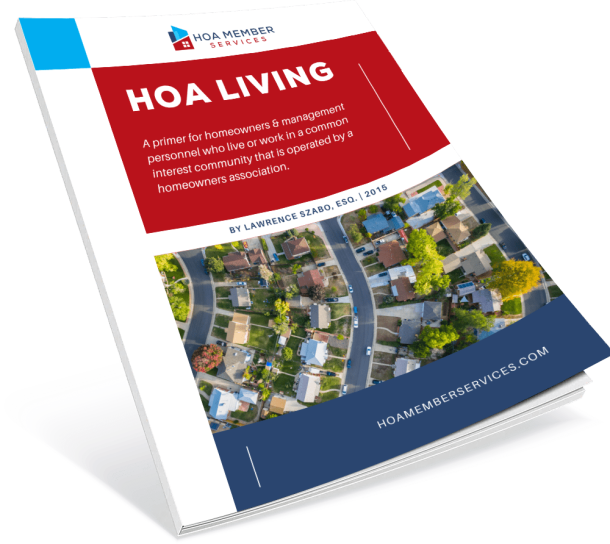Have you ever been caught off guard by a sudden hike in your HOA fees?
You could be having an amazing day, but suddenly, your phone buzzes with an email notification. It’s a notice of higher HOA fees from your Homeowner’s Association.
Peaceful day? Not anymore! One minute, you’re having fun, and the next, you’re scrambling to adjust your budget.
It’s a situation many homeowners find themselves in, scratching their heads and wondering why HOA fees keep rising. These hikes can add stress to your budget, your savings, and even your peace of mind.
But how often you should brace for it? Well, usually, not more than once a year, but it can vary. That’s why we’re here to give you a clear picture on the dynamics of HOA fee increases.
In this guide, we’ll break down why and how often do HOA fees increase so you can be at peace knowing what to expect.

What’s the Point of HOA Fees: Why Are They Important?
If you’ve ever lived in a community governed by a homeowners association, it’s easy to see those monthly dues or annual fees as just another bill to pay. There’s a question that might pop up every time you write that check: Are HOA fees worth it?
But once you dig into what these fees cover, you’ll find that they’re actually doing a lot of good for you and your community. Let’s break it down in a way that’s easy to understand and, hopefully, a bit more relatable.
Why Do We Pay HOA Fees?
Well, think of HOA fees as a collective investment into the upkeep and charm of the shared spaces of your community.
Here’s a rundown of what you’re really getting for your money:
1. Upkeep and Maintenance of Common Areas
Ever notice how the parks are always lush and green, the pools sparkling clean, and the landscaping beautifully manicured? That’s your homeowners’ association dues at work.
They ensure these common areas remain in top-notch condition, which means you get to enjoy them without a hitch.
2. Community Facilities and Services
Those security patrols you see around? The well-equipped gym? Or that clubhouse available for your gatherings? All these amenities and services are funded by HOA fees.
They add an extra layer of convenience and enjoyment to your lives, making the community feel more like a resort.
3. Better Property Values
This might be one of the most significant perks. By maintaining high standards across the community, HOA dues keep your neighborhood more desirable.
This consistent upkeep can positively affect property worth, which is great news if you ever decide to sell your home.
Why Do HOA Fees Increase?
If you’ve ever felt blindsided by unexpected HOA fees, you’re not alone. It’s a common gripe among homeowners, and that’s completely understandable.
I get it; your first reaction to HOA fee increases might be a groan of frustration. But let’s take a moment to figure this out—why does an HOA raise dues?
Well, the story begins with the HOA board. The board members are a group of elected homeowners who oversee the community’s finances.
They essentially manage the community’s funds and well-being. An HOA board is responsible for balancing the budget, planning for future expenses, and ensuring sufficient funds to keep everything top-notch.
They review financial reports, anticipate future costs, and sometimes have to make a tough decision to raise dues. Here are some reasons behind a board increasing HOA fees:
Inflation and Rising Costs
Think about the last time you went grocery shopping and noticed that your favorite cereal costs a little more than it did a few months ago. The same inflation that affects your shopping cart also impacts the HOA.
Just like how the price of milk or gas goes up, so do the costs of services and materials needed for the maintenance of your community.
Inflation affects everything from the cost of pool chemicals to the price of landscaping services. When these prices climb, the HOA board has to increase dues to cover the raised costs.
Maintenance and Improvements
Keeping the neighborhood looking good and functioning well often means more than just basic upkeep. Think about major upgrades like repaving roads or maintaining the community playground.
Over time, swings get rusty, slides wear out, and the grass needs constant care. Upgrading these amenities or adding new ones, like a dog park or a state-of-the-art fitness center, requires funds.
When the HOA board decides it’s time for some major improvements, they might need to step up the fees to cover these beneficial upgrades. It’s all about ensuring the standard of living everyone enjoys, but it does come at a cost.
Unexpected Repairs
Life is unpredictable and can sometimes throw curveballs, and so are the challenges that can hit a community. Natural disasters, like storms or earthquakes, can cause significant property damage.
Even if it’s not nature, things break and wear out over time. For example, an old rusty pipeline can burst and end up flooding the roads.
These are the kinds of repairs that can’t be postponed and often weren’t planned for in the annual budget. They demand immediate attention, and the association needs to find the money to fix things quickly, which often means a fee increase in the form of a special assessment.
Reserve Fund Requirements
Every well-managed HOA keeps a reserve fund for a rainy day. Think of reserve funds like a savings account for the community to handle the unexpected expenses we just talked about.
The HOA boards are responsible for ensuring these reserves are adequately funded. It requires a portion of the collected fees.
If the reserve dips below a safe level, your HOA’s board may escalate fees to build it back up. This ensures the community has a financial cushion for future crises, preventing even larger special assessments down the road.

What is the Frequency of HOA Fee Increases?
So, it’s time for the big question—how often do HOA fees increase? Well, for many homeowners associations, the fee increase isn’t a matter of “if” but “when.”
Most HOAs have a pretty regular schedule for reviewing and adjusting fees. Generally, the majority of them raise HOA dues annually.
Every year, the HOA board of directors sits down and crunches the numbers. They take a good hard look at the budget and expenses to decide if it’s time for a little more cash to keep everything running smoothly.
It’s a yearly check-up to make sure nothing is falling through the cracks. Or maybe it’s kind of like your birthday—except instead of gifts, you get a bill. (My condolences)
Some HOAs, though, might stretch this out to biennially. That means every two years, which gives you a bit of a break but can lead to bigger jumps when they do make changes.
However, that’s less common because the annual review just helps keep things balanced and predictable.
How Does the Frequency of Fee Increases Vary?
Now, here’s where things get a bit more interesting. The frequency of increments in HOA dues can vary widely depending on a bunch of factors, so let’s not get too cozy with those timelines.
The Homeowners associations increase fees based on the following:
1. Size of The Community
Living in a big community with tons of amenities like pools, gyms, parks, and clubhouses comes with more frequent fee adjustments. All those perks need regular upkeep, right?
There’s always something that needs fixing or updating. More amenities mean more maintenance, and those costs add up. That’s why larger communities often see more frequent fee hikes.
On the flip side, if you’re in a smaller community with fewer facilities, you might not see fee increases as often because there’s less to maintain.
2. Location
Where your community is located can also play a huge role in how often fees go up. In areas where property values are shooting up, the cost of everything else tends to follow.
This means the homeowners association may need to adjust fees more often. So, if you’re in a high-demand urban area, expect more frequent fee hikes to keep up with the rising costs of services like landscaping, security, and general maintenance.
But if your community is in a more stable, rural area, your HOA might not raise the dues as frequently.
3. Specific HOA Rules
Every HOA has its own rulebook when it comes to increasing fees. The governing documents, including the HOA bylaws and CC&Rs, cover rules and regulations about how and when fees can be increased.
Some have strict guidelines to limit the frequency and amount of fee hikes, providing more predictability for homeowners. These rules can include caps on annual increases and even require a majority vote before any increase, giving a homeowner more control.
Other HOAs might be more flexible, allowing the board to adjust fees as needed without much red tape. Knowing your HOA’s specific rules can give you a good sense of what to expect.

How to Predict and Manage HOA Fee Increases?
When you’re already on a bloated budget and receive yet another notice of a fee increase, it can indeed be frustrating. You might come up with a whirlwind of questions and concerns including “Is there a way to predict or even manage these increases?”
Here’s the good news—Yes, there are ways to get a handle on this!
So let’s dive into some tips that can help you stay ahead of the curve and take control of the situation:
1. Communicate with the HOA Board
The first step to managing homeowners association fee increases is simple yet powerful: get to know your HOA board.
Well-managed HOAs are like open books—they pride themselves on transparent budgeting practices. They also make it a point to inform homeowners about potential fee hikes well in advance.
Make it a habit to reach out and ask questions. How are they planning to allocate funds this year? Are there any major projects coming up that could spike fees?
Through open and consistent communication, you can stay in the loop and get a heads-up on possible increases. Don’t be shy about requesting detailed explanations of how funds are being spent – after all, it’s your money, too!
This proactive approach not only clarifies the process but also puts you in a position to influence more measured fee increases.
2. Be Involved
Another powerful strategy is becoming actively involved in your community’s affairs.
Now, I know attending HOA meetings might not sound like the most thrilling way to spend an evening, but hear me out. These meetings are where all the financial magic happens – or, at least, where you can see the plans and discussions about budgets and expenditures.
By attending, you get a front-row seat to the conference about the community’s funds, upcoming projects, and potential fee raises.
While reviewing financial statements seems boring, it’s a goldmine for understanding where your money is going and why. It’s your opportunity to stay informed and have a say.
Understanding the homeowners association’s finances helps you anticipate upcoming expenses. Plus, being involved shows the board that you’re serious about the community’s financial health.
This means you can advocate for decisions that benefit everyone, potentially preventing unnecessary fee hikes.
3. Negotiate Increases with the HOA
So, what do you do if you find out that a fee increase is on the horizon and it feels too high? Well, don’t just accept it and pay without question.
Start by reviewing the budget in detail to understand the reasons behind the increase. Are there any areas where costs seem inflated? Are there projects that could be postponed or scaled back?
If an increase seems excessive, there’s often room for negotiation. Bring your concerns to the board – sometimes, all it takes is a well-reasoned argument to make them reconsider.
If negotiating on your own doesn’t work, prepare to organize with your neighbors and present a united front. A homeowner union has more power than you might realize.
Together, you can propose alternatives or compromises. For example, if new amenities are driving up costs, suggest gradual implementations or explore cost-saving measures that achieve the same goals without breaking the bank.
4. Get Legal Advice
Sometimes, dealing with your HOA might require a bit of professional guidance. If all your efforts to negotiate fail and the increase still seems unjustified, consider getting legal advice.
Consulting with a legal expert who specializes in HOA regulations can make a big difference here. They can provide you with the leverage and knowledge needed to negotiate effectively.
HOA professionals also help you understand your rights and the legalities involved, ensuring any fee increase is justified and within the bounds of your HOA’s governing documents.
How Often Do HOA Fees Increase: Quick Recap
So, how often do HOA fees increase? In a nutshell, HOA dues typically increase every year due to rising maintenance costs, unexpected repairs, and inflation. The average HOA fee increase hovers around 3-5% annually.
Staying up-to-date about these increases is crucially important. It helps ensure your HOA is transparent and keeps you involved in the decision-making process.
Remember, understanding why and how often these increases occur empowers you to take action and ensures accountability from your HOA.
For more insights and assistance, check out our free resources on managing HOA issues.
Need more personalized help? Consult our expert HOA attorneys, who are here to help you negotiate those pesky fee increases with your HOA. Find support and stay ahead?


